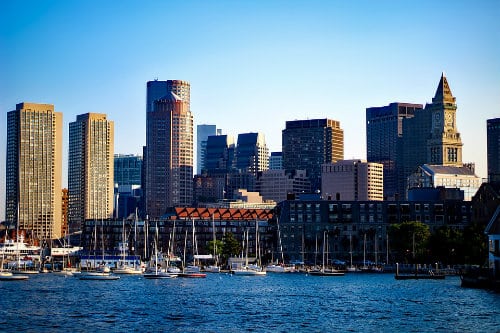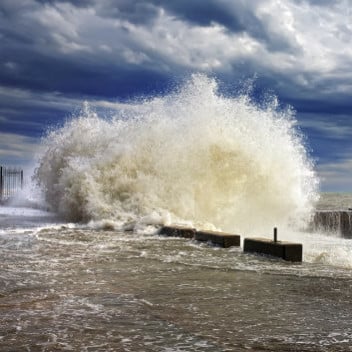If you or a loved one was injured while as a maritime or offshore worker in Massachusetts, you may have several questions:
We can help you learn more about what to expect after a Massachusetts offshore injury. Contact us today for a free consultation.
With the Port of Boston as its centerpiece and 23 other ports and harbors spread throughout the state, Massachusetts is a key state for the importing and exporting of various cargoes, cruise ships, sightseeing tours, and other maritime activities.
The Port of Boston alone accounts for over 50,000 jobs which are in some way related to cargo, cruises, seafood processing, or harbor tours and marina activity within the port. A 2014 report by the Massachusetts Port Authority found that the port alone generated $4.6 billion in total economic value in 2012.
Over 7,000 employees are directly employed through the Port of Boston. These workers play a vital role in keeping the local and national economy running smoothly. However, it’s common for Massachusetts offshore workers to miss time at work with serious maritime work injuries. When this happens, it’s important that they and their families recover the full financial compensation they’re entitled to.
To get assistance from our lawyers representing victims of Jones Act accidents, schedule your free consultation today.


There are two main maritime laws which apply to maritime and offshore worker injuries. Determining which law you’re covered under depends on the nature of your work duties.
Workers on cargo ships, cruise ships, and other vessels are covered under the Jones Act. This generally applies to anyone who spends at least 30% of their work hours contributing to the function of a vessel on navigable waters. This may include offshore oil rig workers, maritime construction workers, ship repair personnel, and others.
When an employee gets injured on a Jones Act ship, he or she may immediately seek financial compensation through no-fault benefits called maintenance and cure. Any offshore injury qualifies for these benefits, which provide financial compensation for necessary daily living expenses (i.e. rent/mortgage, utility bills, food) and medical bills until a doctor determines that the injured person has reached maximum recovery.
The Jones Act also offers injured offshore workers the option to file lawsuits against their employers if negligence contributed to their injury. Examples of this may include failing to follow safety procedures or improperly training employees. Vessel owners may also be found liable if the injury occurred on a vessel deemed unseaworthy – a term which applies to any dangerous or defective condition on the vessel.
Other maritime workers (such as longshore, dock, and harbor workers) are covered under the Longshore and Harbor Workers’ Compensation Act (LHWCA). These benefits are no-fault and provide compensation for medical expenses, lost wages, vocational rehabilitative services, and death benefits for families of fatal accident victims. Unlike most land-based workers’ comp claims, an LHWCA claim is made at the federal level and is much more complicated.
Massachusetts has a total of 24 ports and harbors, but there are a couple which have an especially significant economic impact:
The Port of Boston is one of the most important ports on the East Coast of the United States. This port is primarily used for cargo shipping and cruise ship departures and arrivals. The port handled about 237,000 containers in 2015, including 60,000 automobiles and 121,000 metric tons of cement. Other top cargoes moving through these ports include petroleum, liquefied natural gas, gypsum, and salt. Over 328,000 cruise ship passengers moved through the waters of the Port of Boston in 2015.
The Port of New Bedford is the busiest commercial fishing port in the United States, and also contains facilities for cargo shipping and recreational boating. Port activity generated over 36,000 direct, induced, indirect, or related jobs in 2015. In the same year, the port of New Bedford contributed $9.8 billion in total economic value.
For most injured offshore and maritime workers in Massachusetts, it’s necessary to at least speak with a lawyer in a free consultation. A knowledgeable maritime lawyer can help you learn more about your options after an injury, guide you through the complex legal processes of maritime law, represent you in court, and negotiate with insurance companies on your behalf. In order to make sure you receive the maximum financial compensation you’re entitled to after a maritime work injury, it’s advisable to have an experienced maritime lawyer by your side throughout this process.
If you’d like to learn more about your legal rights, contact one of our experienced maritime lawyers today for a free consultation.
Also See: New Hampshire Offshore Injuries: Options For Financial Compensation

 info@legalherald.com
info@legalherald.com